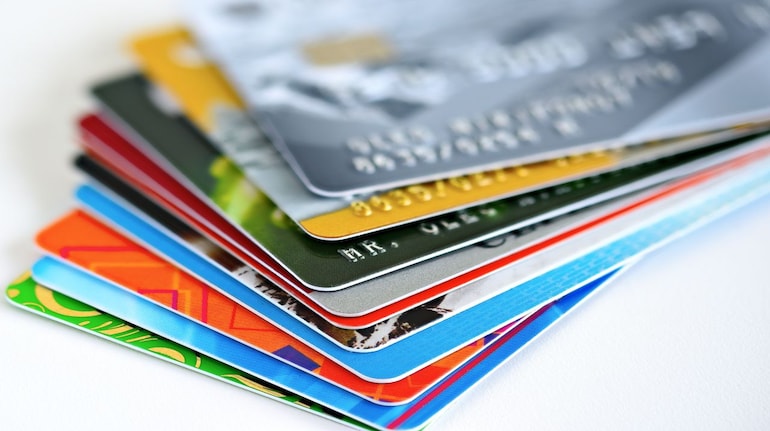



Credit cards can boost your credit score and loan eligibility if used responsibly, but late payments, high utilization, and multiple inquiries can harm your financial profile. Manage credit wisely to unlock better loan terms and maintain financial health.
Credit cards are a double-edged sword when it comes to your financial health. While they provide convenience, rewards, and a credit history, they can also significantly impact your credit score and loan eligibility. Understanding the connection between your credit card usage and your financial profile is essential for making informed decisions.
Here's a detailed look at how credit cards influence your credit score and loan eligibility, along with tips to use them wisely:
Credit cards and your credit score
Your credit score is a three-digit number that reflects your creditworthiness. It is calculated based on five key factors, many of which are directly influenced by your credit card habits:
1. Payment history (35% of your credit score)
Your payment history is the most important factor affecting your credit score. Late or missed credit card payments can negatively impact your score, while consistent, on-time payments improve it.
· Impact: Missing even one payment can lower your credit score and stay on your credit report for up to seven years.
· Tip: Set up automatic payments or reminders to ensure timely payments.
2. Credit utilization ratio (30% of your credit score)
The credit utilization ratio measures how much of your available credit you are using. A lower ratio is better for your credit score.
· Impact: Using more than 30% of your total credit limit can hurt your score, even if you pay off the balance in full.
· Tip: Aim to keep your utilization ratio below 30%, and pay off balances in full whenever possible.
3. Length of credit history (15% of your credit score)
The age of your credit accounts also affects your credit score. Older accounts show a longer credit history, which is beneficial.
· Impact: Closing old credit cards can shorten your credit history and lower your score.
· Tip: Keep older credit cards open, even if you don’t use them frequently, as long as they don’t have high annual fees.
4. Credit mix (10% of your credit score)
A mix of different types of credit, such as credit cards, loans, and mortgages, can improve your score.
· Impact: Having only credit cards or loans can limit your credit profile.
· Tip: Diversify your credit mix by responsibly using both revolving credit (credit cards) and instalment loans.
5. New credit inquiries (10% of your credit score)
Each time you apply for a credit card or loan, a hard inquiry is made on your credit report, which can temporarily lower your score.
· Impact: Multiple hard inquiries within a short period can signal financial instability and harm your score.
· Tip: Limit the number of credit card applications and apply only when necessary.
Credit cards and loan eligibility
Your credit score plays a crucial role in determining your eligibility for loans, such as personal loans, car loans, or home loans. Here's how your credit card usage can affect your loan approval process:
1. Loan approval chances
Lenders use your credit score to assess the risk of lending to you. A higher credit score indicates responsible financial behaviour, making you more likely to qualify for loans. Poor credit card management, such as late payments or high utilization, can lower your score and reduce your chances of loan approval.
2. Loan terms and interest rates
Even if you qualify for a loan, your credit score influences the interest rate and repayment terms offered by lenders. A high score can get you lower interest rates and better terms, while a low score can result in higher costs.
· Tip: Use your credit card responsibly to build and maintain a strong credit score, ensuring favourable loan terms.
3. Debt-to-income ratio
Lenders also consider your debt-to-income ratio, which compares your total monthly debt payments to your income. High credit card debt can increase this ratio, making you appear less capable of handling additional debt.
· Tip: Pay down your credit card balances to lower your debt-to-income ratio before applying for a loan.
How to use credit cards wisely to boost your financial health
1. Pay your balance on time and in full: Avoid late payments and interest charges by paying off your statement balance every month.
2. Keep your credit utilization low: Use less than 30% of your credit limit to show lenders you manage credit responsibly.
3. Monitor your credit report: Regularly check your credit report for errors and ensure your credit card usage is accurately reported.
4. Avoid unnecessary credit card applications: Limit applications to prevent too many hard inquiries.
5. Leverage credit card benefits: Use rewards, cashback, and promotional offers to save money, but avoid overspending to earn rewards.
Credit cards can either be a stepping stone or a stumbling block on your financial journey. By using them responsibly, you can improve your credit score, enhance your loan eligibility, and enjoy financial benefits. On the other hand, poor credit card habits can damage your credit profile and make it harder to secure loans.
Remember, your credit score is a reflection of your financial behaviour. Take control of your credit card usage to build a strong foundation for your financial future.
Discover the latest Business News, Sensex, and Nifty updates. Obtain Personal Finance insights, tax queries, and expert opinions on Moneycontrol or download the Moneycontrol App to stay updated!
Find the best of Al News in one place, specially curated for you every weekend.
Stay on top of the latest tech trends and biggest startup news.